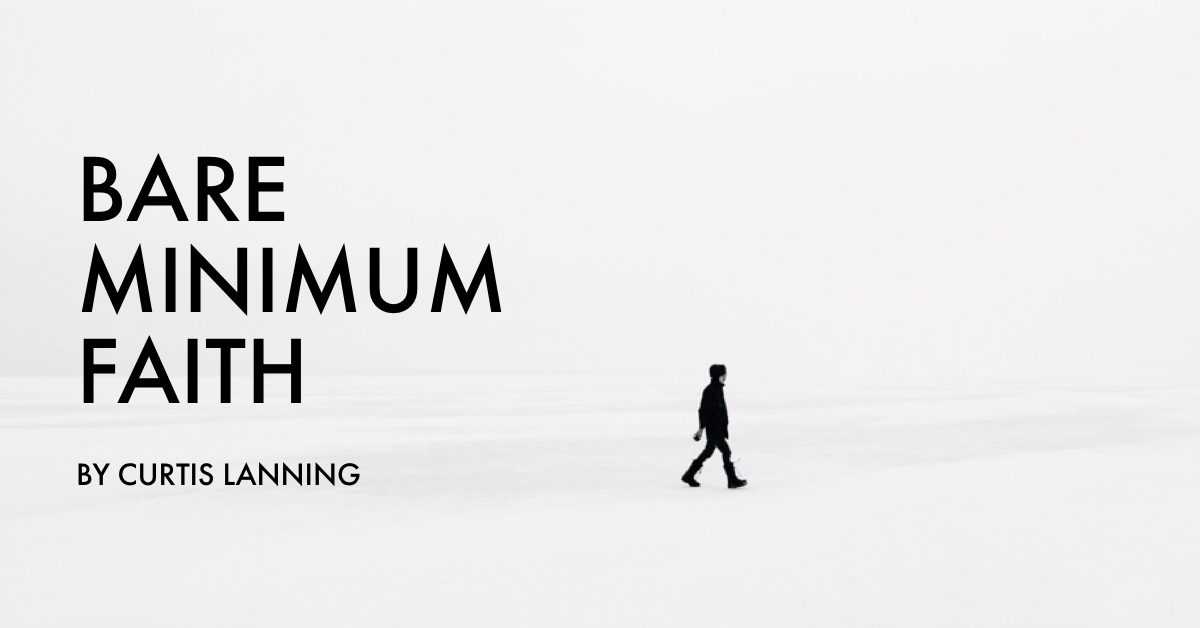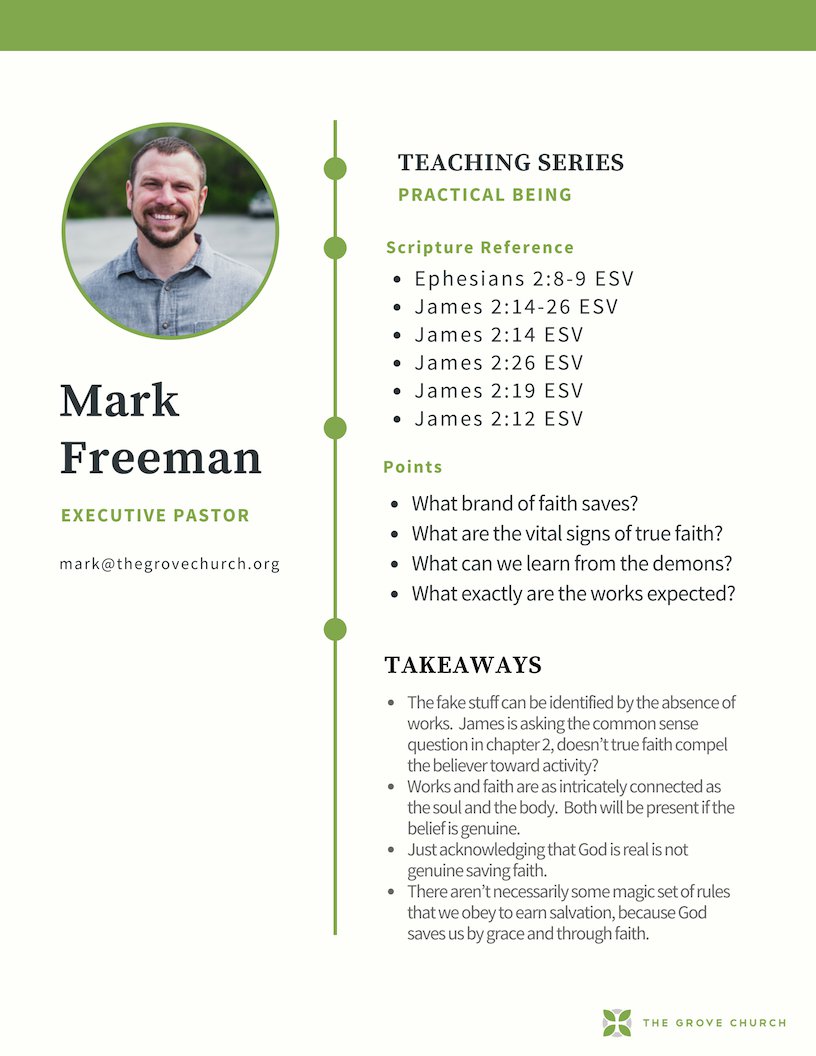
by Curtis Lanning
Sometimes in life we try to get by with the bare minimum. If your budget is tight, you might cut back on some groceries, just trying to buy what you need, the bare minimum food you require to make it to your next paycheck.
If you’re lazy like I was in school, you try to get by with the bare minimum effort. Study just enough. Do just enough homework. Get the minimum grade I need to pass and not look too bad. Shoot for the A, but more realistically expect a B because that requires less effort but doesn’t look as bad as a C to my parents. (Don’t emulate my life, kids).
>
“But of all the things we try to squeak by with the bare minimum, faith shouldn’t be one of them. Faith is the most important thing in our lives, and it requires maximum effort.”
But of all the things we try to squeak by with the bare minimum, faith shouldn’t be one of them. Faith is the most important thing in our lives, and it requires maximum effort. Minimum faith is inadequate. It’s sickly and not very useful to the Lord.
James (traditionally, the brother of Christ) writes about this in the second chapter of his epistle. In this letter he talks about how true faith is combined with action or good deeds. James 2:14-17 reads:
“My brothers and sisters, what good does it do if someone claims to have faith but doesn’t do any good things? Can this kind of faith save him? Suppose a believer, whether a man or a woman, needs clothes or food and one of you tells that person, “God be with you! Stay warm, and make sure you eat enough.” If you don’t provide for that person’s physical needs, what good does it do? In the same way, faith by itself is dead if it doesn’t cause you to do any good things.”
If someone says they’re of the Christian faith but they don’t accompany that faith with good deeds, something is wrong. James even asks “Can this kind of faith save him?” Saying you’re a Christian but doing nothing to help others is almost oxymoronic. Being a Christian and helping others go together like chocolate and peanut butter. It’s the Reese’s of salvation.
Simply telling a hungry person to make sure they eat enough is worthless. Worse, it’s almost spiteful. And it’s behavior like this that can make Christians look bad. But if people see you feeding the hungry and clothing the naked (the kind of stuff Christ talked about in Matthew 25), then they’ll know your faith is active. It’s not minimal.
Minimal faith isn’t really faith at all, as James wrote. Chapter two contains one of my favorite verses of all time because it’s the only verse in the Bible I know of that contains sarcasm. James 2:19 reads:
“You believe that there is one God. That’s fine! The demons also believe that, and they tremble with fear.”
What a blunt message. A Pew Research poll in 2018 found that 90 percent of Americans believe in God or some form of a higher power. Of that 90 percent, 56 percent said they believe in the God described in the Bible.
Wow, 90 percent. That’s just the kind of vague belief in something James mocks in the above verse. Just saying you believe in God isn’t some grand statement or confession. Even the demons believe in God (probably because they used to be angels in His court and saw him with their own eyes), so treating a vague belief in God or a “higher spiritual power” as some kind of bar to measure your faith is pretty lackluster. That kind of ho-hum faith doesn’t even rise to “bare minimum” in my book.
What does bare minimum faith look like? It’s someone who confesses their belief that Christ is the Son of God and then doesn’t really do anything after that. They might go to church, but that’s about it. It’s the philosophy of doing “enough” to avoid being thrown in Hell.
How do I know this? That used to be me. I grew up in a church where we sometimes got a fire and brimstone sermon. And that Sunday morning guilt-fest delivered straight from the pulpit inspired me to make sure I had enough faith to avoid being tossed in the lake of fire. But it didn’t really give me a direction to go in for those good deeds James writes about.
As a result, I developed two things, a bare minimum faith, and a recurring fear that God was going to send Christ back at any moment, and I’d be thrown in Hell because I didn’t have enough good deeds. Needless to say, this wasn’t a fun place to be, and I had next to no productivity in my deeds because of crippling fear.
But faith shouldn’t be looked at through the lens of “get out of Hell” cards. That’s not what God wants from us. He wants us to have a loving relationship through his Son Christ and to make the world a better place, thus showing others Christ in us.
Continuing in verse 28, James writes, “You fool! Do you have to be shown that faith which does nothing is useless?”
Faith that does nothing (read: bare minimum faith) is useless, James wrote. He then goes on to list two examples from the Old Testament of people who had faith and did good things, Abraham and Rehab.
He closes out chapter two with a solid visual. “A body that doesn’t breathe is dead.” Okay. Solid medical fact. “In the same way faith that does nothing is dead,” he concludes.
Bottom line: bare minimum faith is the same as dead faith.
Don’t leave your faith in the bare minimum category. Grow it by doing good deeds and helping others. The Grove has plenty of ways to serve. You can start small, or you can start big. But the important thing is to get started. And you can get started at the welcome desk in the lobby every Sunday morning.


